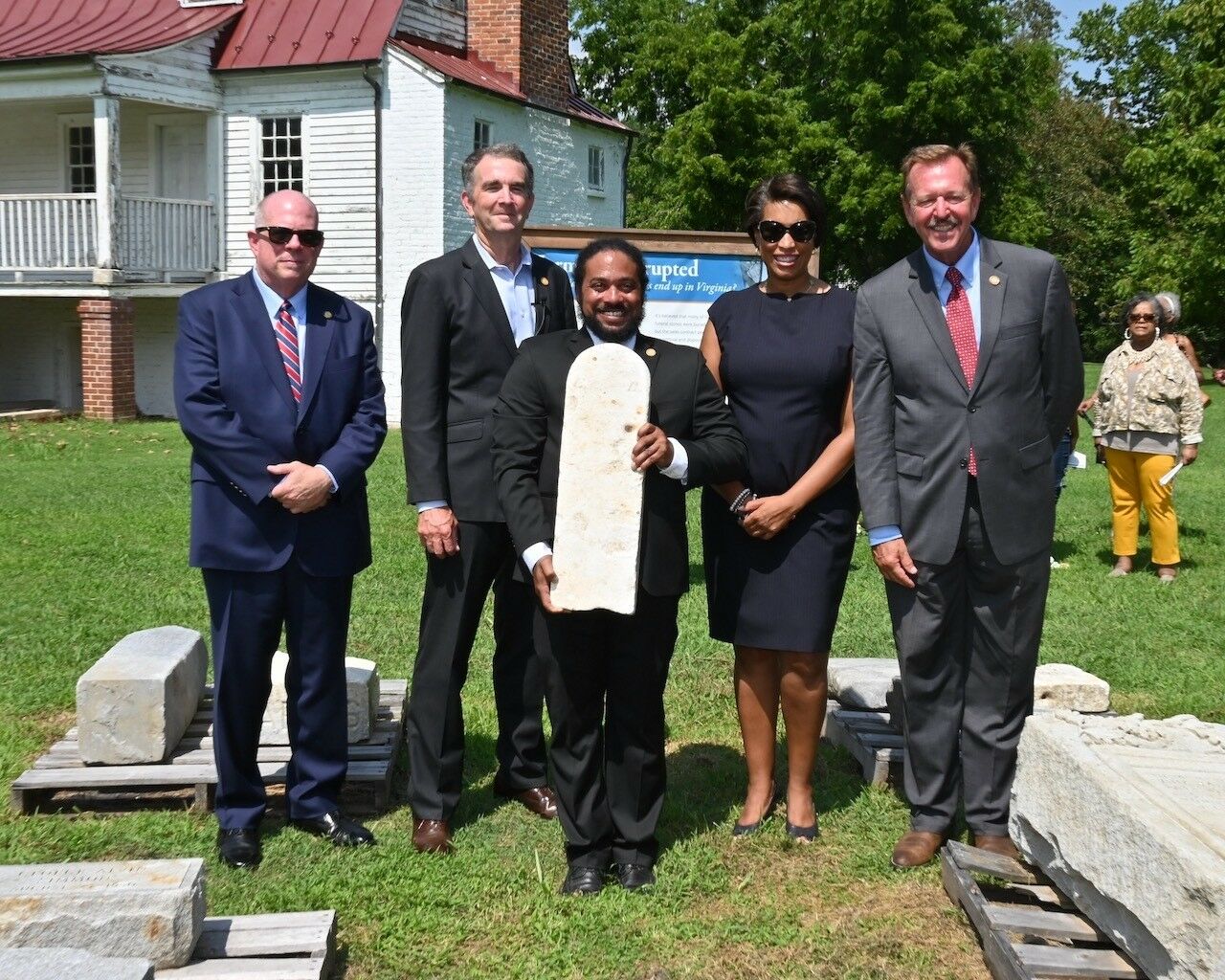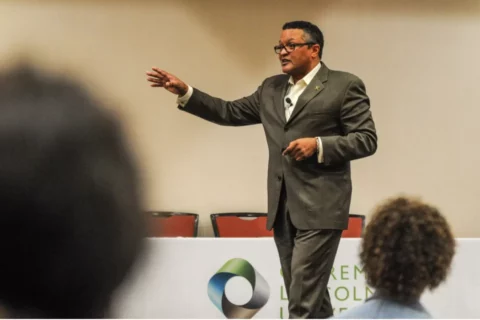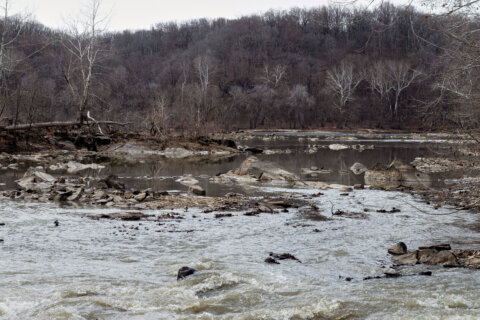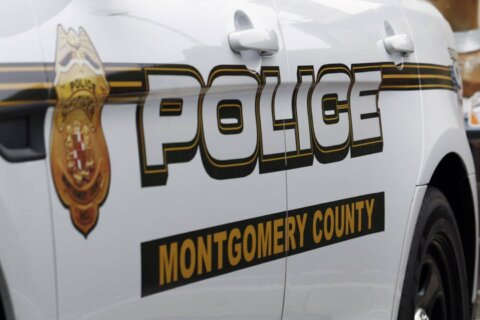
More than 50 historic headstones that marked the final resting place for some of the District’s free Blacks and slaves were supposed to end up at a cemetery, in Prince George’s County, Maryland, 61 years ago, but ended up in the Potomac River. They finally reached their destination Monday.
At a ceremony in King George County, Virginia, D.C. Mayor Muriel Bowser, Maryland Gov. Larry Hogan and Virginia Gov. Ralph Northam honored the 55 Black lives linked to the headstones and passed them off to moving crews for transport.
“What we’re really talking about is how we tell the stories of this time,” Bowser said. “Not just this action, but this time. What we’re talking about is righting the wrong.”
In 1960, developers dug up thousands of graves at the Columbian Harmony Cemetery to make way for the Rhode Island Avenue-Brentwood Metro station, high-end shops and houses in Northeast D.C.
At the time, the cemetery, which started in 1859, was the District’s oldest segregated burial ground, and the final resting place of many prominent African-Americans, Elizabeth Keckly, a confidante of Mary Todd Lincoln; and Phillip Reid, who helped create the Statue of Freedom atop the U.S. Capitol.
Developers promised to move the graves to the National Harmony Memorial Park, in Landover. But about five years ago, residents along a 2-mile stretch of the Potomac in King George County began spotting strange rocks along the water’s edge, where Caledon State Park fronts the river. It turned out the rocks were really gravestones.
Virginia State Sen. Richard Stuart was one of those homeowners. He called historians who linked the stones to the old Columbian Harmony graveyard. They discovered that many of the stones were sold as debris to shore up the river’s edge and prevent erosion.
“If I were a descendant of the individuals whose stones landed on the river’s shoreline, I would be angry,” Stuart said Monday. “The dead are supposed to be revered and respected.”
William Hart’s great-grandfather’s headstone was one of those thrown in the water. William Henry Hart Harrison was an early Civil Rights attorney and a Howard University law professor.
“I am happy and encouraged that so many people care about this issue,” Hart said Monday. “This partnership creates an opportunity to address the restoration of our community by way of doing something to restore the identity of the people.”
More than 37,000 people were buried at Columbian Harmony.
The State of Virginia has pledged $4 million for a project to recover and restore the gravestones and the creation of a shoreline memorial. Later this fall, crews from the National Guard in Maryland and Virginia will search for more underwater gravestones.







